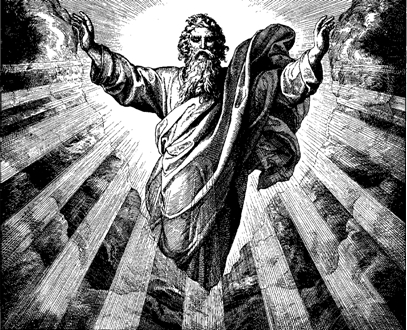If you’re a Christian, you should hold a divine command theory of ethics, and I’m going to tell you why.
As I’ve indicated before, I hold a Divine Command Theory of ethics. That’s the view (or family of views) in which what is right or wrong is what God commands (or forbids). I hold it tentatively in that I don’t think I have anything personally invested in holding this view. I don’t have to hold this view and I really would give it up if I thought the objections to it were any good. As best I can tell, they are not. I’m going to commit the philosophical sin of peering into other people’s motives, but I think that most non-religious criticisms of divine command ethics are really motivated by the critics’ rejection of religious beliefs, and since a divine command theory involves religious beliefs, it must be false (in the critic’s view).



 Occasionally, when somebody first hears about divine command ethics (the view that what is right or wrong is what God commands or forbids), the response is one of incredulity: “What? You believe THAT?! So if God commanded you to kill that person over there, you would do it? Really?” And right there, whether the critic realises it or not, there is almost certainly a double standard at work. Read on to see why.
Occasionally, when somebody first hears about divine command ethics (the view that what is right or wrong is what God commands or forbids), the response is one of incredulity: “What? You believe THAT?! So if God commanded you to kill that person over there, you would do it? Really?” And right there, whether the critic realises it or not, there is almost certainly a double standard at work. Read on to see why.
 In Episode 41, I address a common objection to divine command ethics: Does the fact that non-believers can still know moral truths and live moral lives somehow show that morality is not in any way grounded in God’s will or commands? Here I survey some crude versions of this argument and then offer some comments on a more recent presentation of the objection by Wes Morriston.
In Episode 41, I address a common objection to divine command ethics: Does the fact that non-believers can still know moral truths and live moral lives somehow show that morality is not in any way grounded in God’s will or commands? Here I survey some crude versions of this argument and then offer some comments on a more recent presentation of the objection by Wes Morriston. We’ve reached a milestone – 40 Episodes!
We’ve reached a milestone – 40 Episodes! NOTE: In this episode I call it episode 40. It’s not. It’s episode 39.
NOTE: In this episode I call it episode 40. It’s not. It’s episode 39.
